Donnie Brasco is a 1997 crime drama film directed by Mike Newell, based on the true story of FBI agent Joseph D. Pistone, who infiltrated the mafia under the alias “Donnie Brasco.” The film is an adaptation of Pistone’s memoir, Donnie Brasco: My Undercover Life in the Mafia. Starring Johnny Depp as Donnie Brasco and Al Pacino as Lefty Ruggiero, the movie explores themes of loyalty, deception, and the emotional toll of living a double life.
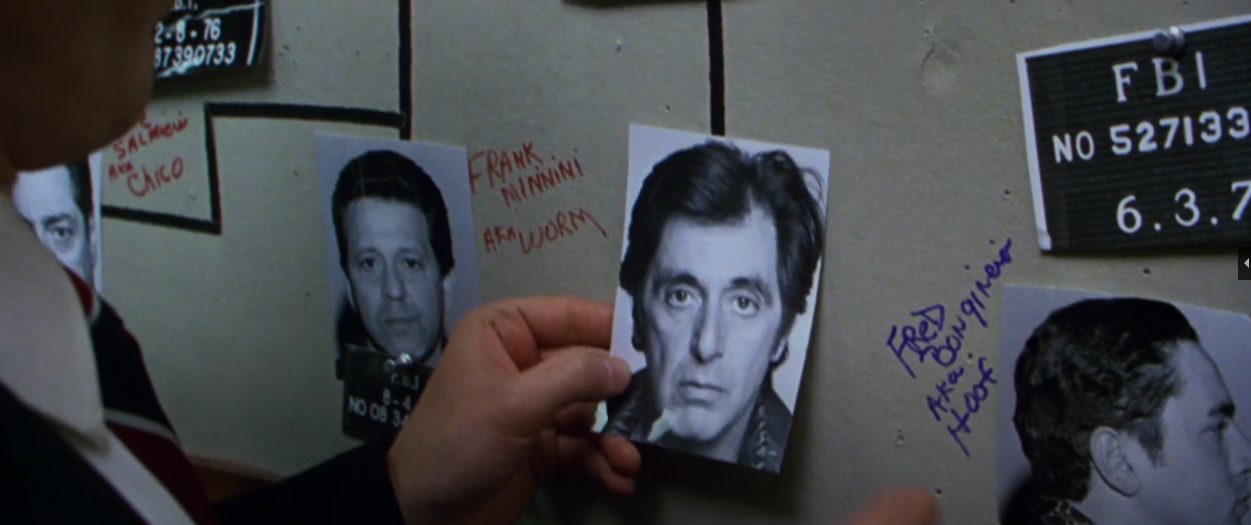
Plot Overview
The film follows Joseph Pistone (Johnny Depp), an FBI agent tasked with infiltrating the mafia in the late 1970s. Pistone adopts the alias “Donnie Brasco” and integrates himself into the Bonanno crime family in New York City. The story is as much about his undercover work as it is about his relationship with Lefty Ruggiero (Al Pacino), a low-level but seasoned mobster.
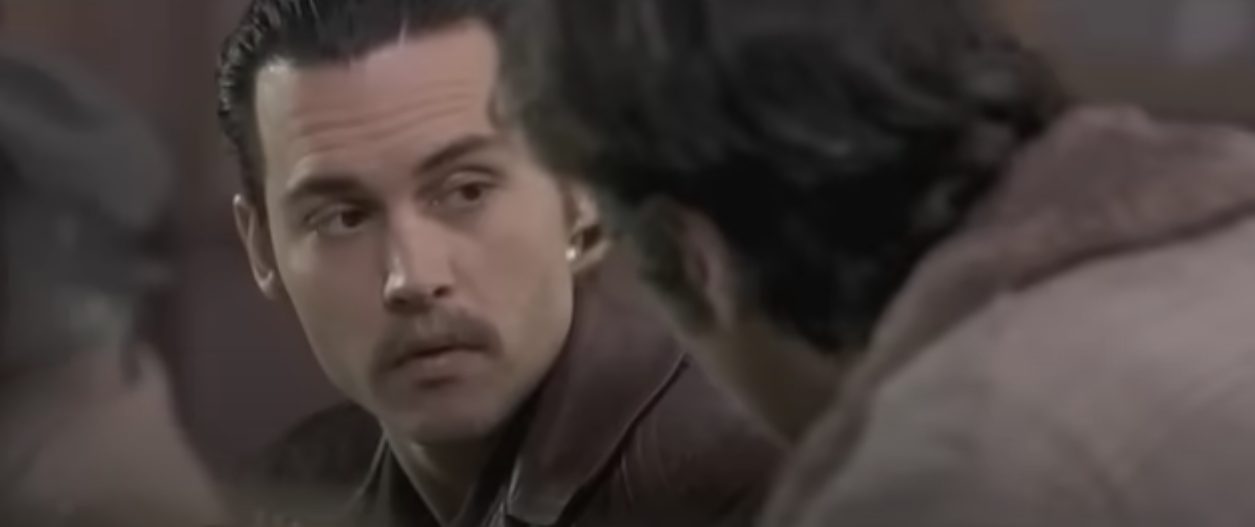
Infiltration and Bond with Lefty:
Pistone, as Donnie, quickly earns the trust of Lefty, a weary and overlooked hitman. Lefty takes Donnie under his wing, teaching him the ways of the mafia and vouching for him. Lefty’s deep need for respect and his fatherly demeanor create a bond between the two.
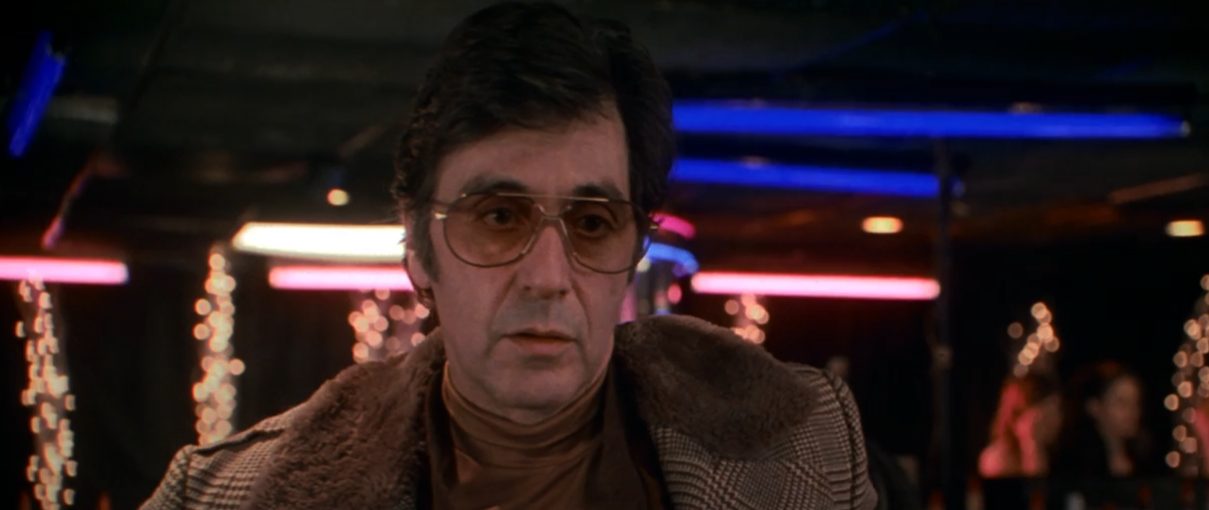
Rise in the Mafia:
Donnie rises through the ranks thanks to his intelligence and cunning. He becomes close to higher-ups, including Sonny Black (Michael Madsen), who represents a more ambitious and dangerous faction of the family. The deeper Donnie goes, the harder it becomes to maintain his cover.
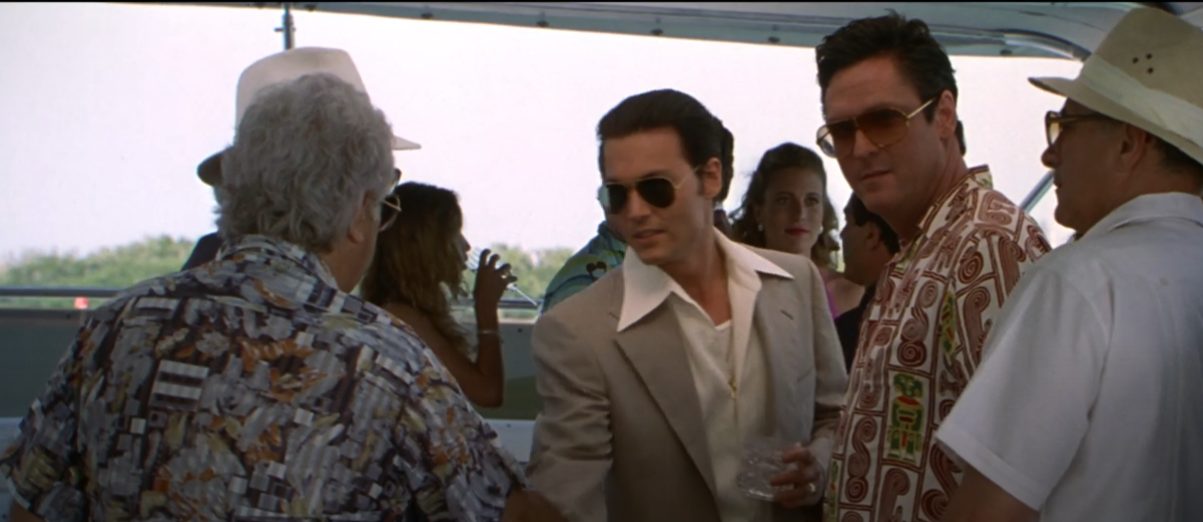
Strain on Personal Life:
Donnie’s undercover work takes a toll on his personal life. His wife, Maggie (Anne Heche), struggles with his extended absences and erratic behavior. Donnie is increasingly torn between his real life and his mafia persona.
Moral Dilemmas:
As Donnie becomes immersed in the mafia lifestyle, he begins to empathize with Lefty, who is ultimately a tragic figure. Lefty is loyal to the mob but constantly exploited and undervalued. Donnie’s role in building a case against the very people he grows close to creates a deep internal conflict.
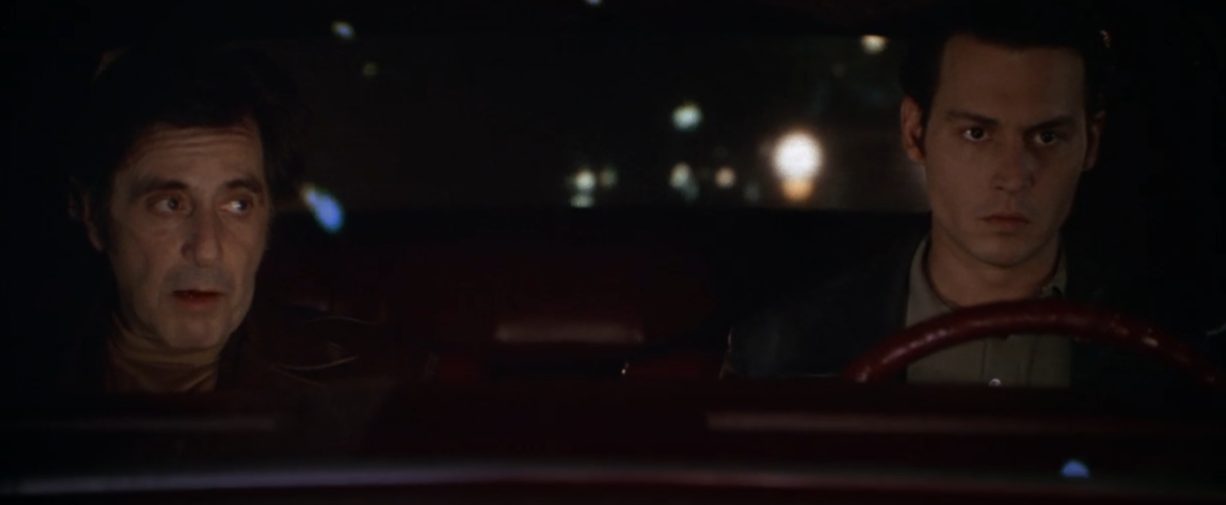
Climactic Betrayal:
The FBI eventually pulls the plug on the operation, providing enough evidence to indict key members of the Bonanno family. However, Donnie’s departure puts Lefty in a precarious position. Knowing Lefty vouched for Donnie, the mob is likely to hold him accountable.
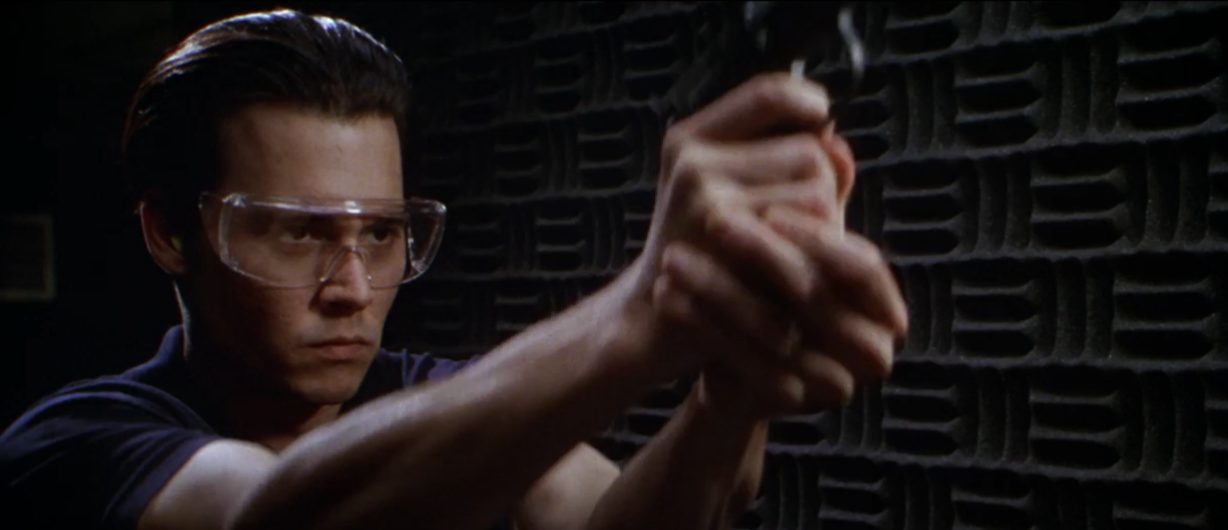
Tragic Ending:
The film concludes with a somber tone. Donnie returns to his normal life, but Lefty, resigned to his fate, prepares to face the consequences of his loyalty. It’s heavily implied that Lefty is killed for his association with Donnie, highlighting the brutal realities of mob life.
When Cindy attempts to escape during the chaos, Norman accidentally kills her, leaving Rocky and Alex as his next targets.
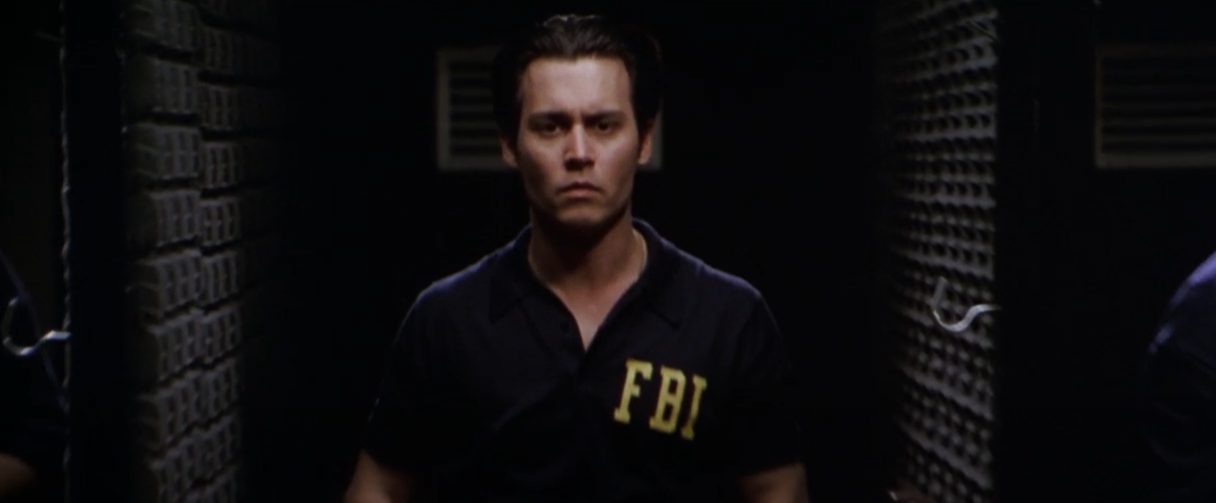
Technical Review and Key Elements
Duality and Identity:
The film delves into the psychological toll of living a double life. Donnie’s struggle to reconcile his loyalty to the FBI with his growing attachment to the mafia members, especially Lefty, is central to the narrative.
Loyalty and Betrayal:
Loyalty is a recurring motif. Lefty’s unwavering loyalty to the mob contrasts sharply with Donnie’s ultimate betrayal of the people he infiltrated. The irony is that Donnie respects Lefty more than many people in his real life.
Moral Ambiguity:
Unlike typical gangster films, Donnie Brasco focuses on the personal cost of crime and undercover work. Lefty is a sympathetic character despite being a criminal, and Donnie’s actions, while justified legally, feel emotionally devastating.
Father-Son Dynamics:
The relationship between Lefty and Donnie mirrors that of a father and son. Lefty sees Donnie as his legacy, someone who will carry forward his teachings, making Donnie’s betrayal all the more painful.
Roger Ebert: Awarded the film 3.5 out of 4 stars, noting that it “plays like a companion to ‘GoodFellas’, with the same lore, the same fierce Mafia code, the same alternation between sudden violence and weird comedy.
Rotten Tomatoes: The film holds an 88% approval rating based on 57 reviews, with an average rating of 7.70/10. The consensus states: “A stark, nuanced portrait of life in organized crime, bolstered by strong performances from Al Pacino and Johnny Depp.”
Metacritic: It has a score of 77 out of 100, indicating “generally favorable reviews” based on 21 critics.
IMDb: Users rate the film at 7.7/10 based on approximately 341,000 ratings, reflecting generally favorable audience feedback.
Ending Explained
- The FBI Pulls the Plug:
After years of undercover work, the FBI calls off Joseph Pistone’s operation as Donnie Brasco. His efforts provide them with substantial evidence to indict several key members of the Bonanno crime family, including Sonny Black (Michael Madsen). Pistone is given a commendation for his work, but it comes at a steep personal cost. - Lefty’s Fate:
Lefty Ruggiero (Al Pacino), Donnie’s mentor and the mobster who vouched for him, is summoned to meet with the mafia higher-ups after the truth about Donnie’s identity as an undercover FBI agent is revealed.- Implied Death: The film shows Lefty removing his jewelry and personal belongings, a ritualized preparation in the mob world for facing inevitable death. As he walks out of his apartment, the door closes behind him, and the scene cuts away, leaving his fate offscreen. It is heavily implied that Lefty is executed for bringing Donnie into the mafia, as his vouching for Donnie made him responsible for the betrayal.
- Donnie’s Return to Normalcy:
Pistone returns to his regular life, but the emotional weight of his undercover work lingers. He is shown reflecting on the deep bond he formed with Lefty and the betrayal he had to commit in service of his mission. The FBI offers him a $500 check as a reward for his years of dangerous work—a stark contrast to the sacrifices he made. - Lefty’s Legacy:
Despite being a low-level mobster with little power, Lefty represents the loyalty and code of the mafia, even if it ultimately led to his downfall. His character serves as a tragic reminder of how expendable individuals are in the mafia’s ruthless hierarchy.
What Happens to the Characters?
- Joseph Pistone (Donnie Brasco): In real life, Pistone entered the witness protection program after his cover was blown. The film captures his internal struggle and hints at the lasting psychological impact of his undercover work.
- Lefty Ruggiero: Though the film leaves Lefty’s death implied, historical accounts suggest that Lefty was arrested by the FBI before the mob could kill him. He eventually died of cancer in prison.
Message of the Ending:
The ending of Donnie Brasco serves as a poignant reminder of the personal sacrifices made in the pursuit of justice. It also critiques the mafia’s hollow promises of loyalty and respect, showing that even the most devoted members can be discarded without remorse. Ultimately, it’s a story about the emotional and moral costs of living a life of deception and the human consequences of choices made in service of duty.
Significance and Legacy
Donnie Brasco is celebrated for its authenticity and nuanced storytelling. The film avoids glamorizing the mafia, portraying it instead as a world of paranoia and betrayal. The performances by Johnny Depp and Al Pacino are particularly praised, with Pacino delivering a poignant portrayal of a small-time mobster facing the end of his career.
The movie serves as a character study and a moral examination of the cost of undercover work, making it a standout in the crime drama genre. Its true-story basis adds a layer of poignancy, reminding viewers of the real dangers and sacrifices involved in such operations.




